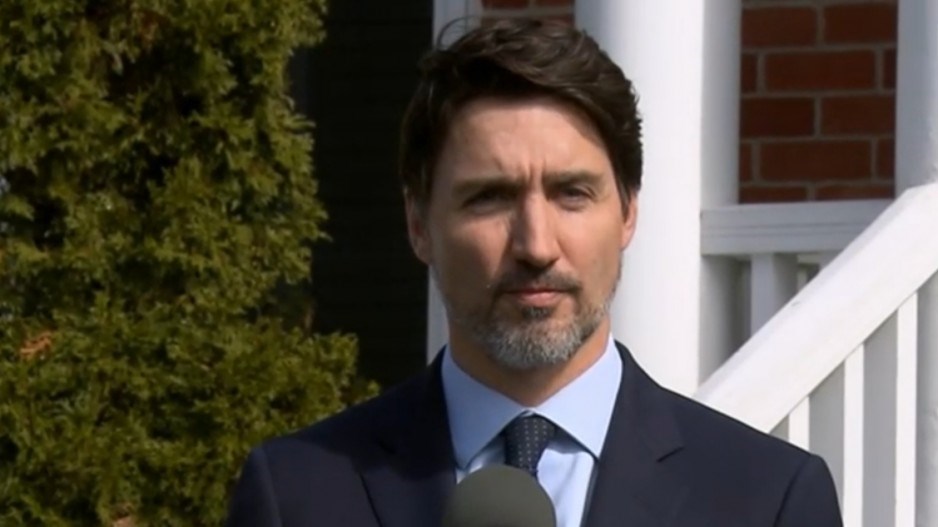What happened: Canada is closing its borders in an effort to contain the spread of COVID-19.
Why it matters: Those who are not Canadians or permanent residents of Canada will be denied entry, with some exceptions. United States citizens will be permitted entry.
Canada is closing its borders and restricting travel to Canada to contain the spread of the novel Coronavirus.
Prime Minister Justin Trudeau announced Monday that travel to the country will be restricted to Canadians, permanent residents and U.S. citizens, with some exceptions. Air crews, diplomats and immediate family members of Canadians will be permitted entry.
The restrictions will take effect at 12 p.m. on March 18.
"We can still slow the spread of this virus," Trudeau said. "But the window is closing."
"It's time to take every precaution to keep people safe."
Only four airports in Canada will continue to receive flights from abroad: Vancouver International Airport, Toronto Pearson International, Montreal-Pierre Elliott Trudeau and Calgary International. Flights from the United States, Mexico and the Caribbean, and trade-related flights, will not be affected.
"We recognize that the level of integration of our two economies ... puts the U.S. in a separate category from the rest of the world," said Trudeau, who added that he has been in close communication with American counterparts. The United States had 1,678 confirmed cases of COVID-19 as of March 16, according to the World Health Organization.
Trudeau reminded Canadians to avoid non-essential travel outside of the country, and urged Canadians abroad to return home via commercial means "while it is still possible to do so."
Canadians abroad who need to come home will have access to financial support to cover basic needs.
Airport operators will be required to conduct basic health assessments for all travellers. They will also be required to restrict the travel of anyone exhibiting COVID-19 symptoms.
"We've decided to take increasingly aggressive steps," said Trudeau. "It is the right step to be taking today."
He added that new measures to support Canadians during the COVID-19 outbreak will be announced Tuesday. Trudeau said that the government's priority is to ensure Canadians at home have the ability to purchase food and pay for rent. He also said that the federal government is working through how it can support Canadian businesses.
How Canadians will receive funds will be announced in the coming days.
Last week, the federal government announced a $10 billion credit facility to assist businesses impacted by the spread of the Coronavirus.
The announcement Monday follows criticism about COVID-19 screening measures at Canadian airports, notably Toronto Pearson International, and an increase in confirmed cases of the virus on Canadian soil.
Over the weekend, the number of confirmed cases in Canada leapt 73 per cent, to 341 from 197.
Since Friday, a number of governments around the world have announced largely unprecedented measures to contain the spread of the Coronavirus.
The United States extended its travel ban on European flights to the United Kingdom and Ireland. Spain has asked residents to remain at home save for essential tasks, such as purchasing food or attending medical appointments. France has ordered the closure of non-essential stores and restaurants. Denmark has closed its borders to Danes, residents and green card holders.
Click here for original story.



